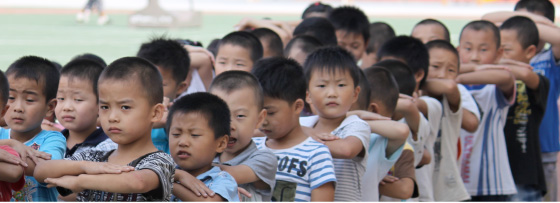
Beijing Project: Our Challenge
There are about 250 million rural-urban migrants in China today. Thirty million of them are school-aged children, and a majority of these children have spent most of their lives in the cities. While the relevant policies stipulate that the host city government is responsible for providing compulsory education for these children, many of them can only attend privately run migrant schools. Moreover, due to the household registration (hukou) system, these children cannot participate in public examinations and do not have access to local high school education.
As a result, all migrant children have to face the difficult decision of either returning to their home villages after middle school (thus facing formidable challenges including the lack of care-givers and curriculum differences) or staying in the city working in menial jobs with few prospects. Most migrant youths choose the latter, entering the job market prematurely with little or no vocational skills, creating a cycle of intergenerational poverty.
We seek to address the educational, developmental and social challenges faced by these migrant youths, and to find ways to improve their life skills and employment opportunities. By looking into the individual and contextual factors that contribute to intergenerational poverty among migrant families, our goal is to develop an actionable, sustainable, and scalable model to improve the life-vocational skills of the migrant youths, so as to prevent and alleviate intergenerational poverty transmission in this large and growing population.
